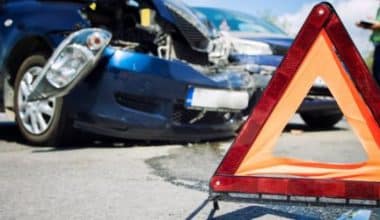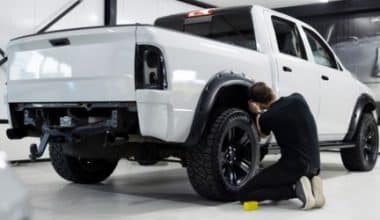Business Yield did a thorough analysis of the camper insurance market and its leading suppliers to find the finest recreational vehicle (RV) insurance providers. We look at some of the coverages in this round-up of the best RV insurance providers. Learn more about RV insurance and find out which other providers made our list of suggestions.
Best RV Insurance Companies
#1. Progressive
Progressive is our top recommendation for RV insurance. A variety of RVs, including Class A, Class B, and Class C motorhomes, are insured by Progressive. Fifth-wheel trailers and standard trailers are also protected. Not all insurance companies provide coverage for such a wide variety of RVs.
Furthermore, Progressive makes it very simple to locate any potential reductions. The Progressive platform provides consumers with several insurance cost-saving options when they request a quote for a policy. There are also a lot of discounts available, such as those for the original owner, multiple policies, full payment, responsible driving, quick payment, claim-free renewal, homeowners, continuous coverage, and paperless.
Additionally, Progressive also provides disappearing deductibles, which are another choice. Progressive claims that as part of this reduction, it will deduct 25% for each period during which your coverage has been claim-free, continuing until the amount is zero.
Coverage Types:
- Comprehensive and collision
- Liability
- Uninsured/underinsured motorist
- Medical payments
Discounts and Benefits:
- Original owner
- Multi-policy
- Pay in full
- Responsible driver
- Prompt payment
- Claim-free renewal
- Homeowners
- Continuous coverage
- Paperless
Add-ons and customization:
- Roadside assistance
- Total loss replacement
- Replacement cost/personal effects
- Vacation liability
- Full-timer’s liability
- Loss assessment
- Emergency expense coverage
- Pet injury coverage
- Roof protection plus
- Pest damage protection
AM Best financial strength rating:
- A+ (Superior)
#2. Good Sam Insurance Agency
Full-timers are not often covered by RV insurance, but Good Sam does. Additionally, it provides adaptable coverage choices made with full-time RVers in mind. The full-timer’s plan offers personal liability loss coverage beyond that related to a vehicle accident for those who use their RV for six months or more each year. Medical payments to third parties, personal property insurance, and emergency expense reimbursement are other choices available to full-time RVers. The majority of RVers should be able to obtain coverage for any lifestyle and budget Note that Good Sam works with a network of specialty RV insurance providers to provide coverage (unlike other companies in this article, Good Sam is an insurance agency, not an insurance business).
Coverage Types:
- Collision
- Comprehensive
- Uninsured and Underinsured Motorist Protections
- Personal Liability
- Property Damage Liability
- Bodily Injury Liability
- Personal Injury Protection
Discounts and Benefits:
- Multi-vehicle discount
- Paid in full discount
- Multi-policy discount
- Storage option discount
Add-ons and customization:
- Full replacement cost coverage
- Full-time RVer coverage
- Emergency expense coverage
- Personal effects coverage
#3. National General
The ability to halt coverage when your RV is not in use is one of National General’s services that stands out. For individuals who don’t plan to drive or live in an RV all the time, this could be a useful money-saving option. The pause option suspends collision and liability coverage for the months when your RV is in storage or not in use, saving policyholders, according to the insurer, up to 53% on premium costs.
Furthermore, another item to think about is National General’s purchase price protection add-on, especially if you drive an expensive new RV. This coverage, which pays up to the RV’s original purchase price if it is totaled and needs to be replaced, can be added to your policy throughout the first nine model years of an RV.
Coverage Types:
- Comprehensive
- Liability
- Full replacement cost coverage
Discounts and Benefits:
- Multi-vehicle discounts
- Diminishing deductibles
- Storage savings option
Add-ons and customization:
- Purchase price guarantee
- Emergency expense allowance
- Specialized equipment coverage
AM Best financial strength rating:
- A+ (Superior)
#4. Allstate
Allstate provides alternatives, including vacation liability, pet coverage, tow bar coverage, and emergency expense coverage, in addition to the essentials like bodily injury liability, property damage liability, collision coverage, and comprehensive. Full-timer’s liability coverage is another option available through Allstate. Those who live in an RV permanently for more than six months a year are eligible for this coverage. Additionally, Allstate provides a policy discount to customers who complete an RV safety course, something that not all insurers provide.
Coverage Types:
- Bodily injury liability
- Property damage Liability
- Collision coverage
- Comprehensive
- Medical payment coverage
- Uninsured and underinsured coverage
- Personal injury protection coverage
Discounts and Benefits:
- Homeowner discount
- RV safety course discount
- Married discount
- Pay in full discount
- Paperless discount
Add-ons and customization:
- Personal effective coverage
- Total loss replacement
- Vacation liability
- Emergency expenses
- Full-timer liability coverage
- Pet coverage
- Tow bar coverage
AM Best financial strength rating:
- A+ (Superior)
#5. Nationwide
Nationwide provides a number of discounts, such as multi-policy and multi-vehicle discounts, RV safety course discounts, paid-in-full discounts, good driver discounts, prior insurance discounts, and claims-free renewal discounts. Additionally, it provides a discount for RV association membership, which is something few of its rivals provide. Membership discounts in RV clubs, like the National RV Association, may be available to policyholders.
Furthermore, comprehensive roadside assistance is available nationwide. Therefore, when you require roadside help, you can use its mobile app to track service in real-time, receive information on the progress of a driver, and browse Google ratings of nearby repair shops. The emergency assistance service offers towing, jump starts, petrol delivery, flat tire repairs, and winching and is available around the clock. You can gain compensation for trip disruption costs like housing, travel, and food when you add the optional towing coverage to your policy.
Coverage Types:
- Bodily injury liability
- Property damage liability
- Collison
- Comprehensive
- Uninsured motorist
- Underinsured motorist
- Medical payments
Discounts and Benefits:
- Multi-policy
- Multi-vehicle
- RV safety course
- RV association
- Paid in full
- Good driver
- Prior insurance
- Claims-free renewal
Add-ons and customization:
- Roadside assistance
- Towing and labor
- Vacation liability
- Safety glass replacement
- Replacement cost and scheduled personal effects
AM Best financial strength rating:
- A+ (Superior)
#6. Geico
This is also true of Geico’s RV insurance, which is well known for its excellent customer service. Customer service representatives are on hand round-the-clock, every day of the week, twenty-four hours a day. Additionally, customer care can be contacted online via live chat on the Geico website or through the Geico app. Not all service providers provide a range of communication options, which can be comforting in an emergency.
Furthermore,
- Numerous motorized and towable RVs are also covered by Geico.
- Type A motorhomes, Type B motorhomes (van campers), and Type C motorhomes (small motorhomes) are all covered motorized RVs.
- Conventional travel trailers, fifth-wheel trailers, trailers with expandable ends, even folding camper trailers, and truck campers are covered by their travel insurance.
- Geico also offers coverage for toy haulers used to move motorcycles and ATVs, in contrast to many other insurance companies.
#7. State Farm:
It should come as no surprise that State Farm provides high-quality RV insurance as the nation’s largest insurer. One of the company’s greatest assets is the profusion of physical offices with friendly neighborhood insurance brokers in every insurance category. That holds true for RV insurance as well. People should research the company if they have other policies with State Farm or prefer to conduct their insurance business face-to-face.
Notable Coverages
1. Personal articles:
This includes everything that isn’t permanently affixed to your RV, including jewelry, medical equipment, computers, and more.
2. Roadside assistance:
There are other emergency roadside services included, like fuel delivery and RV flat tire replacement. According to the State Farm website, not all automobiles qualify for this coverage.
Best RV Insurance for Full-Timers
All RVers can choose from a high-quality range of coverage options from Nationwide, but full-timers seeking camper insurance should keep them in mind as well. People who live in an RV as their main house can receive coverage for practically any circumstance thanks to the options offered. That coverage is made more affordable by a wide range of discounts.
Best RV Insurance in Texas
One of Texas’ top RV coinsurance providers, Progressive, provides the following services:
- Policies beginning at $125 per year
- In as little as three minutes, you can obtain a quote online.
- Coverage for a range of RV types
- Bundling more Progressive insurance plans will result in greater savings.
Best RV Insurance Prices
According to our research, the average annual cost of RV insurance is close to $1,500. But, as you might expect, given the wide diversity of camper sizes and prices, RV insurance premiums can vary significantly.
How to choose the right RV insurance policies
It’s crucial to acquire coverage that is customized to your RV type, lifestyle, and personal preferences when evaluating your RV insurance options. The majority of RV insurance providers have basic coverage options for both full-time and part-time RVers.
#1. Bodily injury liability:
If you cause an accident with your RV, it will pay for the costs of injuries to others, such as medical expenses and lost wages.
#2. Property damage liability
In the event of an RV accident, it pays for any property damage you cause to third parties.
#3. Collision coverage
This will pay for repairs to your motorhome or camper trailer if it rolls over or sustains damage in an accident.
#4. Comprehensive coverage
This includes things that have nothing to do with car accidents. This can involve theft, wind, and fire damage.
#5. Uninsured or underinsured motorist coverage
This protects you if the negligent driver who caused your injuries or property damage is unable to pay your claim through insurance. Some states have laws requiring this.
#6. Personal injury protection
This, regardless of who was at fault for the event, helps cover the cost of your and your passenger’s medical bills after an incident in your RV.
Who has the best insurance for RVs?
Our Top Picks for the Best RV Insurance Companies
- Good Sam
- Nationwide
- National General
- Progressive
Does Progressive have good RV insurance?
Progressive provides you the option to choose your deductible and delivers some of the best RV insurance prices available. Progressive, for instance, allows you to raise your deductible to reduce your premiums.
What kind of insurance do you put on an RV?
There are specific types of coverage that owners of the majority of recreational vehicles should think about purchasing. These consist of:
#1. Comprehensive coverage:
This kind of insurance covers physical harm to an RV that results from sources other than accidents. Comprehensive coverage would pay if a tree fell on the car while it was parked. The owner would rely on complete coverage if the camper were to be stolen.
#2. Uninsured or underinsured coverage:
If your RV collides with a driver with insufficient insurance or no insurance, this insurance will cover the damage to the RV. Due to the high cost of RVs, many drivers will not have sufficient liability insurance to cover their repair or replacement following a collision.
#3. RV roof protection:
An optional add-on called roof protection can cover an RV’s roof damage. It may also cover issues brought on by the camper’s leaky roof.
#4. Pest protection:
A costly RV can occasionally suffer significant damage from insects and other pests. Therefore, RV insurance coverage offers the option of adding pest protection, which would cover any necessary repairs if rodents, birds, or insects cause damage.
Is it a good idea to get RV insurance?
It’s a good idea to have insurance even if you’re not obligated to purchase it for an RV. Insurance safeguards your funds if you are held financially liable for an accident, and coverages like personal injury protection cover injuries to you and your passengers.
Who has the cheapest RV insurance rates?
Allstate, Nationwide, and Progressive all offer reasonably priced RV insurance. Liability insurance, which is necessary for RVs that can be driven, is the least expensive kind of coverage for RVs. For basic coverage, RV insurance can cost as little as $125 per year.
How much coverage should I have on my RV?
#1. Liability
If you cause harm to someone or damage to someone else’s property with your RV, liability coverage will protect you. Every RV insurance policy includes this protection. Property damage and physical injuries are covered separately under this policy.
Note that you will decide what limits your insurance will pay if you are accountable for causing damage or physical harm to someone else when you get your RV insurance policy.
#2. Property Damage
Your liability policy will help cover any damages if you drive your RV and cause any form of property damage, such as damaging a fence, a sign, or a vehicle.
Most consumers set their per-accident property damage limitations at $100,000.
#3. Bodily Injury
Bodily injury is the other component of liability insurance. If you cause physical harm to a person with your RV, bodily injury insurance will pay the victim’s medical bills. Note that the typical cap on physical harm is $250,000 per individual, with a $500,000 overall cap per accident.
#4. Accidental Death
If any of the named drivers on your policy, or minor family members, are killed in an RV accident, accidental death coverage will reimburse your beneficiary or funeral home. Note that this policy often has a $5,000 maximum limit and costs less than $5 a year.
#5. Underinsured Driver
Unfortunately, a lot of the drivers on our highways simply have the bare minimum of insurance coverage. If you are involved in a catastrophic accident, these minimums are frequently not sufficient to pay for your medical expenses.
If an underinsured driver strikes you, your underinsured driver’s insurance will start paying your medical bills. For the majority of our clients, we advise setting your underinsured driver limits at $250,000 per person and up to $500,000 per accident. Note that this significant coverage will cost an additional $10 to $15 per year.
#6. Uninsured Driver
In the US, about one out of every eight drivers does not have enough liability insurance. If you are struck by an uninsured driver, your medical costs will be covered by the uninsured motorist policy.
You should establish your limits for this coverage at $250,000 per person up to $500,000 per accident. Most likely, this coverage will cost $15 to $20 a year.
#7. Comprehensive
RV comprehensive insurance protects your vehicle from harm caused by events other than collisions. Fire, hail, wind, flooding, falling objects, vandalism, rioting, or encounters with animals would all fall under this category.
Furthermore, they will demand this coverage if you have an RV loan with a bank. For this policy, you must select a deductible amount. Your deductible might be anywhere between $100 and $2,500.
#8. Collision
Any damage to your RV that results from a collision that you cause is covered under collision coverage. Once more, if your RV is financed, your lender will demand that you have this coverage.
The same range of $100 to $2,500 applies to collision coverage as it does to comprehensive coverage when determining your deductible amount.
#9. Vacation Liability
If someone is wounded in your area when your RV is not parked at your house, this coverage will shield you from liability.
For instance, vacation liability will defend you if you park at a campground and a guest slips and falls under your awning. Getting burned when tripping over firewood at your campsite might be another illustration. The vacation liability insurance would provide coverage for that incident.
#10. Emergency Coverage
If you require emergency assistance while traveling, emergency coverage will protect you. If your RV breaks down, this will pay for any towing fees or an unplanned hotel stay.
#11. Personal Property Coverage
The things you have in your RV will be safeguarded by personal property insurance. Consider going out to dine while you are parked at a campground. Someone breaks into your RV while you’re away and takes various electronics. You could claim under your personal property insurance.
Additionally, another illustration would be if a fire broke out in your RV and destroyed all of your personal belongings. Personal property would reimburse you for any lost items up to the maximum value.
Your limit amount will determine how much you will pay for this coverage. This insurance is typically not too expensive.
#12. Other Coverages
Depending on the insurance available, that is, your policy, additional coverage can be offered. When you get in touch with your agent for a quote, they should inquire about any additional coverage.
Do you need separate insurance on an RV?
Recreational vehicles (RVs) don’t always need insurance, unlike other types of cars. If your vehicle is used to tow an RV, such as a camper, caravan, or travel trailer, your current auto insurance coverage may cover it.
Does RV insurance cover power surge damage?
If there are no obvious burn scars present, which is uncommon with surge damage, your RV insurance provider can refuse to pay for electrical surge damage.
Does RV insurance cover storm damage?
This coverage, often known as “other than collision,” might aid in covering damage to your RV that is not caused by a collision. Additionally, vandalism, theft, broken objects, fire, storms, flooding, and a few other types of natural disasters are all included in this list.
Does living in an RV actually save money?
Living in an RV may be far less expensive than living in a typical home, provided you set a realistic budget and stick to it.
Related Articles:
HOW DOES CAR INSURANCE WORK IN 2023?
BEST CAR INSURANCE COMPANIES REVIEWS
Car Insurance For Kids: What You Should Know
References:






